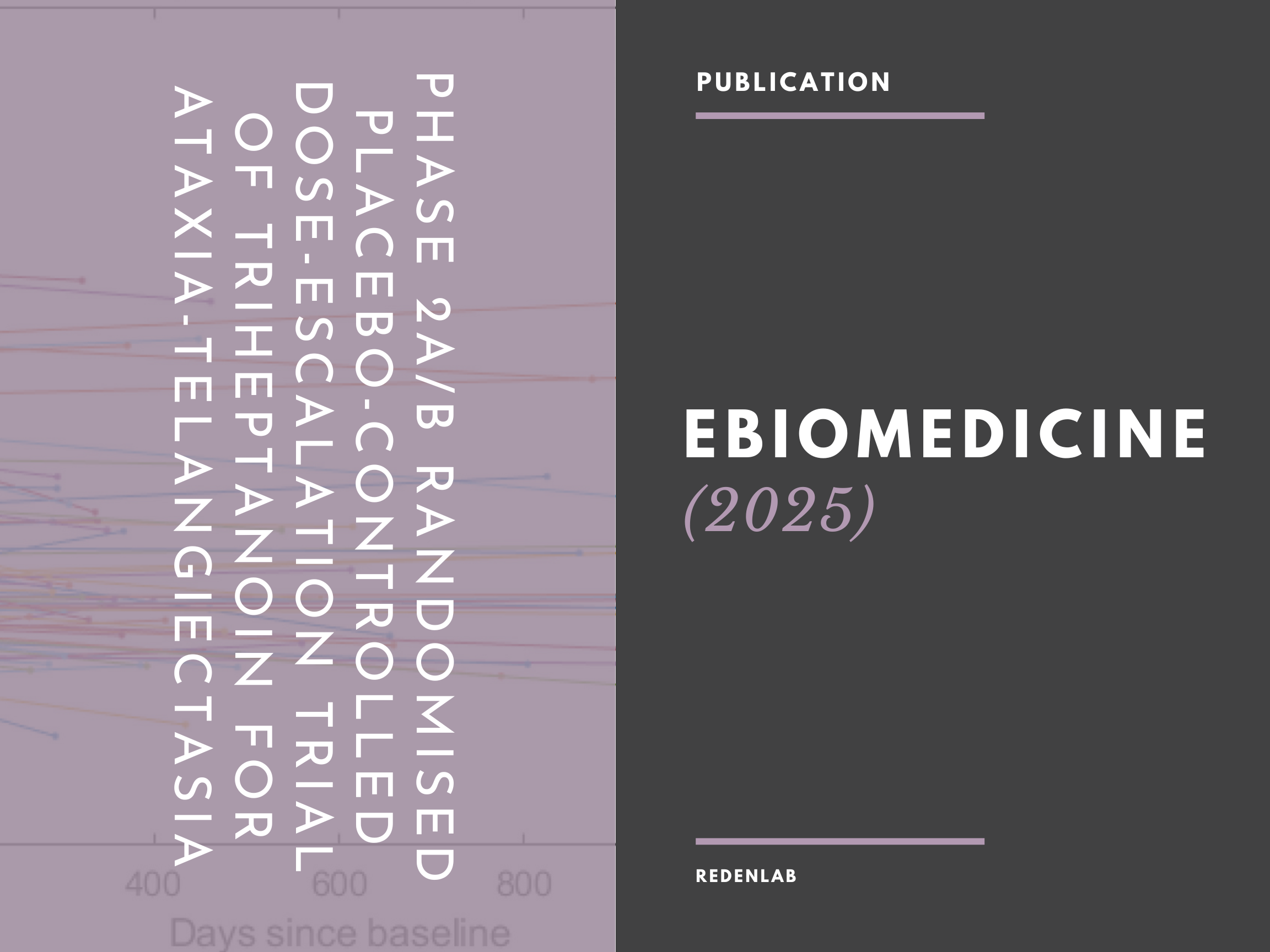Phase 2a/b randomised placebo-controlled dose-escalation trial of triheptanoin for ataxia-telangiectasia

A new clinical trial has found early evidence that a metabolic therapy could improve outcomes for people with ataxia-telangiectasia (A-T), a rare and complex neurodegenerative disease with no approved treatment.
Published in eBioMedicine earlier this month, the Phase 2a/b study tested triheptanoin, a metabolite-based therapy, in patients with A-T. The trial found statistically significant and clinically meaningful improvements in mitochondrial function, which is a key area of dysfunction in the disease.
The study was led by Professor David J. Coman and made possible through collaboration across a broad network of Australian research and clinical institutions, including the Queensland Children’s Hospital, University of Queensland, Griffith University, CSIRO, Garvan Institute of Medical Research, Redenlab, and others.
A-T is a multisystem condition affecting the brain, lungs and immune system. Previous laboratory research showed that A-T cells have disrupted mitochondrial connectivity and calcium balance. Such abnormalities can be corrected in vitro by heptanoate, the active metabolite of triheptanoin.
Building on that foundation, the team designed a randomised, placebo-controlled, dose-escalation trial to test triheptanoin in people living with A-T. The results were encouraging.
The trial also identified two biomarkers as potentially useful tools for monitoring disease progression and treatment response: neurofilament light chain and interferon gene signature.
The full paper, “Phase 2a/b randomised placebo-controlled dose-escalation trial of triheptanoin for ataxia-telangiectasia: treating mitochondrial dysfunction with anaplerosis”, is available in eBioMedicine now.
